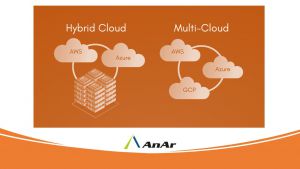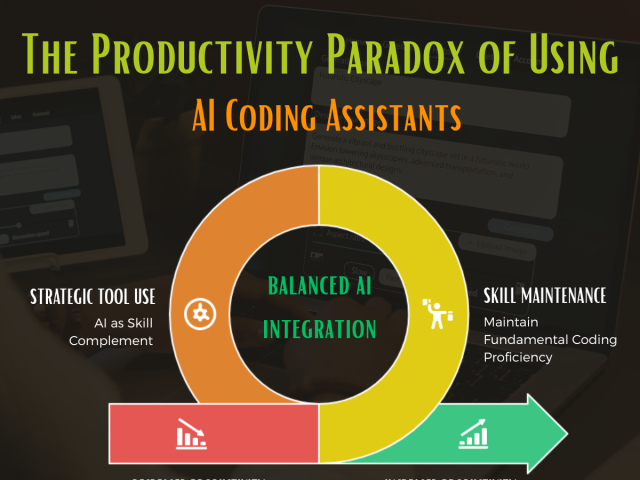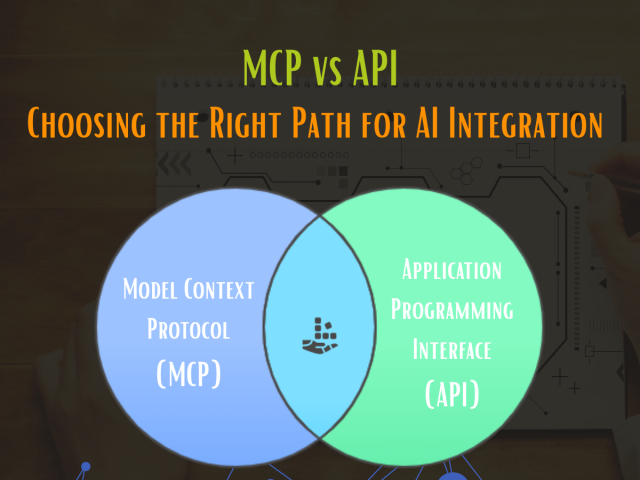In the dynamic realm of modern business, adaptability is key. As industries pivot towards data-centric strategies and remote work becomes the norm, the cloud emerges as the cornerstone of this transformation. It’s no longer a matter of gut instincts; a nuanced approach is required, one that carefully weighs the merits of both Hybrid Cloud and Multi Cloud solutions.
Let’s embark on this journey armed with compelling statistics. By 2021, a staggering 94% of workloads were projected to be processed in cloud data centers. It’s not surprising that 65% of organizations prefer the Hybrid Cloud strategy. Even SMEs, to the tune of 43%, lean towards the public cloud over private.
As the dust of 2020 settled, an estimated USD 257 billion was slated for public cloud spending, with Hybrid Cloud infrastructure poised for an investment of USD 128 billion by 2025. The landscape is evolving, and it’s crucial to stay ahead of the curve.
But what exactly sets Hybrid Cloud and Multi Cloud apart?
In the journey ahead, we’ll explore how these choices impact accessibility, cost optimization, automation, and disaster recovery. And, as we delve deeper, we’ll uncover the strategic nuances that can accelerate your organization’s evolution in this cloud-powered era. With Hybrid Cloud and Multi Cloud paving the way, the future is not just flexible—it’s boundless.
What is Hybrid Cloud?
The Hybrid Cloud combines on-premises infrastructure, integrating both private and public cloud components. Though both involve cloud deployments, they diverge in their foundational infrastructure. Notably, the Hybrid Cloud excels in establishing a secure, high-speed connection between the enterprise and the cloud environment.
What is Multi Cloud?
Multi-cloud refers to the strategy of using multiple cloud computing platforms or services from different providers to meet an organization’s specific computing needs. In a multi-cloud environment, businesses may utilize services and resources from various public cloud providers (such as AWS, Microsoft Azure, Google Cloud Platform, etc.) as well as private clouds or on-premises infrastructure. This approach offers flexibility, redundancy, and the ability to optimize costs by selecting the most suitable cloud services for different applications or workloads. It also provides a level of vendor independence, reducing the risk of vendor lock-in.
When it comes to Hybrid Cloud versus Multi Cloud Strategy, it all begins with a thorough assessment of your specific needs. This encompasses considerations for databases, applications, servers, operating systems, data centers, virtualization, network, and storage.

Similarities that confuse in forming Hybrid Cloud vs Multi Cloud Strategy:
Both use more than one cloud. Multi Cloud uses only public clouds and Hybrid uses private and public clouds both as per the needs of organization. Since both the clouds involve several independent cloud environments, they require a disparate set of tools to meet operational needs. A common factor that interests the management is pay as you use this tremendously reduces overhead expenses.
Hybrid Cloud vs Multi Cloud Strategy has a benefit of both multi cloud and hybrid cloud brings precision in the capability of being available for customers and offer services more efficiently.
How different are multi cloud and hybrid cloud is what you should know if you are defining Hybrid Cloud vs Multi Cloud Strategy?
- Workload: Multi cloud uses cloud bursting technique and distributes the workload to multiple clouds. It creates workload balance when there is high demand. Hybrid cloud combines benefits of two different clouds i.e. private and public providing noteworthy flexibility to organize workloads. Underutilization of the cloud is also a cost to the organization.
- Risk Reduction: Equation of risk depends on the nature of business and risk taking capacity pertaining to the type of data. Hybrid cloud allows you to choose between private and public cloud to fix your data while Multi cloud lets you fix data with a public cloud provider.
- Ops Tools: Hybrid cloud pairs up private and public cloud making native tools available, eliminating the need to buy the third-party ops tools. Managing Multi Cloud, you ought to have clarity of cloud service brokers and cloud management platforms. You need to try and test tools that are suitable, that add technological value to strengthen the Hybrid Cloud vs. Multi Cloud Strategy.
- Infrastructure: Customization of infrastructure lowers the risks on Multi cloud environment. Multiple clouds add to the capability and performance, assures uninterrupted services even if a host fails. Hybrid Cloud of private cloud and third party public cloud services, the infrastructure lets you manage dedicated services.
- Security: Data protection is a skillful matter when it comes to Multi cloud especially due to policies of various cloud providers. The third party partners handle it efficiently except for your distinctive requirements. Distribution of responsibilities among parties calls for supervision. Data encryption secures the data but when it comes to moving data from private to public cloud organizations still dread landing to Multi Cloud instead of Hybrid Cloud.
- Control: Integration of resource management and monitoring on hybrid cloud leads to persistent cloud performance. Establish control by choosing the right infrastructure environment that optimizes agility. It allows experimentation for the applications running at a large or medium scale. Multi cloud supports platform scaling to a great extent. It is perfect if you have plans to increase the existing capacity of applications, add new applications or its availability.
- Accessibility: Opting Hybrid cloud gives flexibility to an organization in terms of accessibility. A remote workforce can have easy and uninterrupted access to data anytime anywhere. A Multi cloud deployment ensures the correct mix of various services offered by different public cloud providers without any need to migrate all your data or applications.
Lookout for Hybrid Cloud vs Multi Cloud Strategy:
- Optimizing use of cloud
- Automation and scalability
- Monitoring expenses and diverting investments
- Migrating workloads on the cloud
- Cost optimization and enhanced productivity
- Formation of automation policies for better control
- Managing software licenses on the cloud
- Disaster recovery and online backup
- Accelerate time to market
- Adds to the efficiency of IT staff
- Overall flexibility & robust security
Multi clouds reduce the dependency on a single provider, and you can select from AWZ, Microsoft Azure, Oracle, and Google Cloud Platform. Organizations prefer Multi cloud because of the ability to mix Saas, IaaS, and PaaS for delivery mechanisms.
Centralized identity infrastructure applied across multiple environments of Hybrid cloud lessens IT dependency and efforts. Select from hybrid cloud providers AWS, VMware, Rackspace, Microsoft Azure, Google, and IBM.
Large enterprises tend to use more than two public and at least private clouds. Over 59% of enterprises expect incremental use of cloud storage. USA, China, UK, Germany, and Japan are top consumers of cloud computing technologies. India’s growth is no more a mystery so hesitance can be only due to ignorance.
Factually, Hybrid Cloud vs Multi Cloud Strategy should ideally be agile, flexible, and a perfect match to organizational needs. Trailing helps to find a suitable option; when moving data and applications from private cloud to Multi cloud or Hybrid cloud.
Conclusion
The cloud is now indispensable for businesses. Understanding Hybrid Cloud vs. Multi Cloud is crucial. Both approaches have significant impact.
Hybrid Cloud combines on-premises and public cloud for a strong, fast connection. Multi Cloud offers access to multiple public clouds, tailored to data needs.
Knowing your needs, like databases or applications, is key. Consider workload, risk, and infrastructure for decision-making.
Adaptability is vital. Mastering cloud navigation gives a strategic edge, yielding benefits like cost efficiency and automation.
Whether Hybrid or Multi Cloud, remember: it’s a transformational force, propelling us toward a future defined by flexibility and security. Embrace it.




